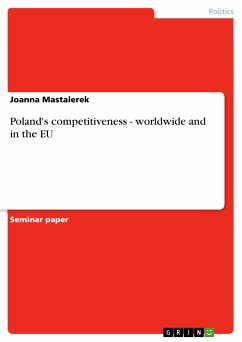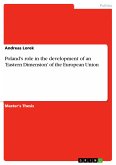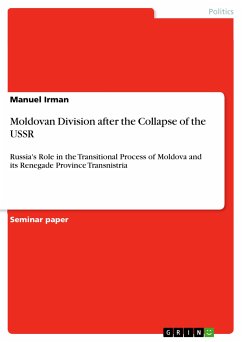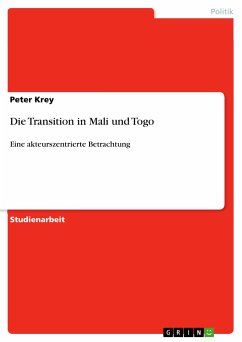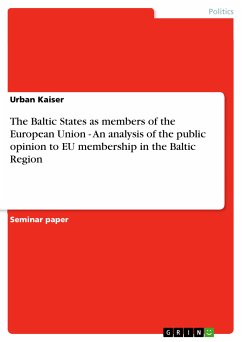Seminar paper from the year 2004 in the subject Politics - Region: Eastern Europe, grade: 1,5 (A), Hamburg University of Ecomomy and Policy (European Studies), course: Political Economy of Transition, language: English, abstract: Competitiveness is nowadays one of the central preoccupations of governments and industries wordwide. Especially for reintegrating Central and Eastern European Countries (CEECs) into the world economy these countries´ national competitiveness plays a crucial role. Even if national competitiveness has become a widespread concept, there still exists no final definition, as scientists point out. Though a first orientation about the concept of competitiveness can provide Michael E. Porter´s approach, in which he explains: “The only meaningful concept of competitiveness at the national level is national productivity. […] No nation can be competitive in everything. A nation´s pool of human and other resources is necessarily limited. The ideal is that these resources be deployed in the most productive uses possible.” Using Porter´s definition as a first anchor for the assessment of Poland´s competitiveness, one has to closer examine Poland´s level of national productivity.
Bitte wählen Sie Ihr Anliegen aus.
Rechnungen
Retourenschein anfordern
Bestellstatus
Storno

